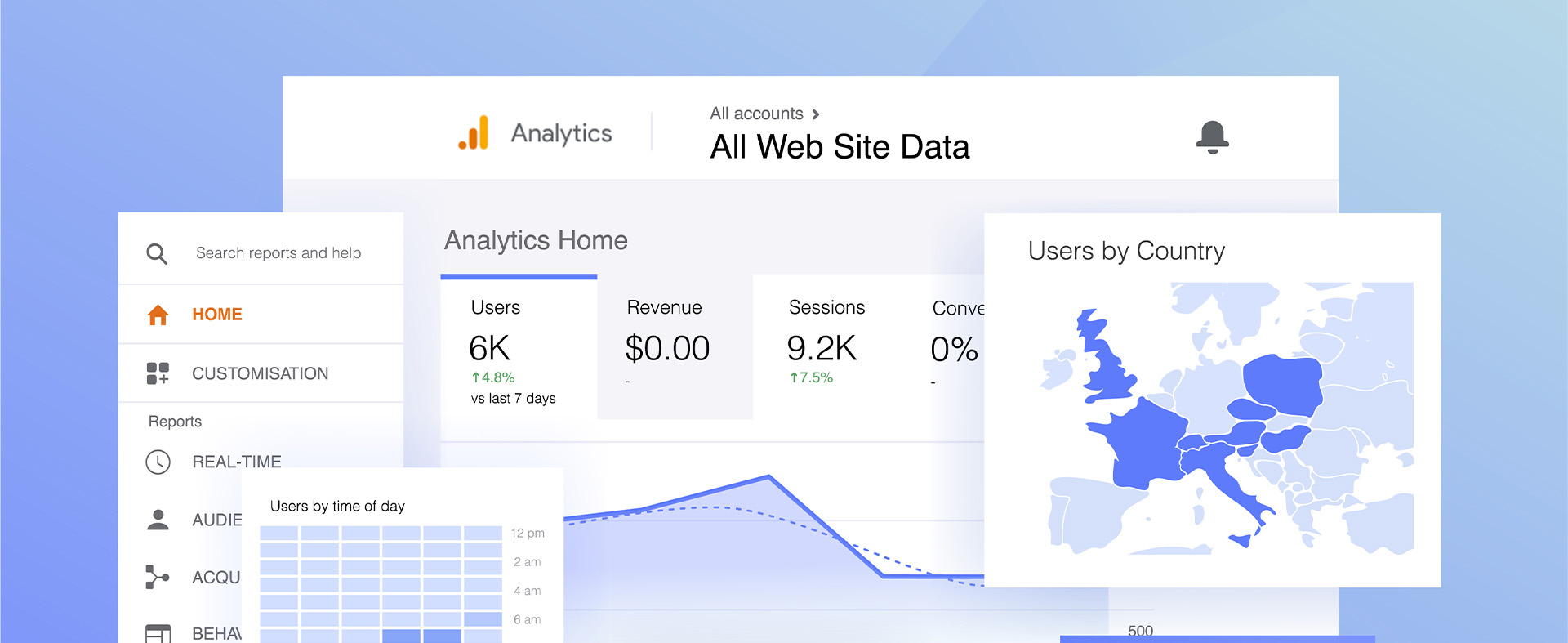In July of 2023 Google Analytics 4 (GA4) became the new default version of the widely used web metrics platform, and a year later the legacy Universal Analytics it replaced was permanently taken offline. If your brand was using Google’s older Universal Analytics before the 2023 transition date, it’s now gone and you’ve been moved to the newer GA4—either strategically on your own terms ahead of time, or as the result of Google’s compulsory changeover of lagging accounts.
The new version was met with both pushback and excitement from various users who had grown up with the tool’s previous generation for years. Some were daunted by the steep learning curve and differing metrics that GA4 brought with it, while others eagerly took advantage of new customizations and more granular tracking.
While initial reception to the rollout varied, two things are now certain: GA4 is here to stay, and it’s not just an update—it’s a whole new tool.
CMOs and their support teams face a fresh set of tools, data structures, and tracking options that can supercharge marketing efforts and reach goals. Here’s a practical breakdown of the biggest differences to help you make the most of GA4, using resources like Google Tag Manager (GTM), real-time reports, and custom explorations effectively.
Key Upgrades from Universal Analytics to GA4
At first glance, a lot has changed from the previous version of Google Analytics. But there’s much more to the new GA4 than a UI redesign.
Event-Based Tracking Over Sessions
GA4 is all about events, not sessions. This change offers more flexibility but means you’ll need to rethink data collection strategies. Google Tag Manager has become the power user’s new best friend for configuring event-based actions across digital properties.
Enhanced Realtime Reports
GA4’s realtime reports offer richer, more dynamic insights, allowing your team to track user actions as they happen. Universal’s realtime data often lagged, while GA4 can give more immediate visibility, especially valuable for time-sensitive campaigns and testing.
Custom Explorations for Deep Analysis
Explorations are advanced analysis tools that allow you to go deeper into your data beyond standard reports. They enable your team to perform ad hoc queries, visualize user behavior, and uncover insights tailored to your specific business needs.
Practically Speaking: How to Take Advantage of These Changes
Some of GA4’s new features can be accessed and appreciated out of the box without any additional work. But unlocking the real value of this platform requires planning and detailed execution.
Revamp Tagging with Google Tag Manager
To get the most out of GA4, your team will need to rethink its tagging strategy. Google Tag Manager is your go-to here, allowing complex event tracking (where needed) and making it possible to measure and analyze your marketing campaigns.
Lean on Realtime Data for Rapid Adjustments
GA4’s realtime reports can help your team react faster than before. Whether you’re monitoring a new launch or tracking campaign performance, these reports provide some of the timely insights marketing departments crave.
Customize Explorations to Answer Key Questions
Train your team to use custom explorations to answer specific questions about user behavior and marketing efficacy. This flexibility means you won’t need multiple views, as with Universal; instead, you can configure explorations that provide exactly the data you need and access them anytime.
Build Your Team for Success
GA4 represents a new way of thinking about data. While the shift from Universal Analytics has required marketing departments to grow their skill sets—and for some, onboard new talent—these investments open the door to richer insights and faster decision-making.
If you’re a CMO or Director of Marketing seeking to leverage your analytics better and ensure your campaigns are making a difference, DKY can help. Our focus is to deliver better results by fostering partnerships of trust and impact. Let us know what your pain points are and where we can supplement your existing team.
